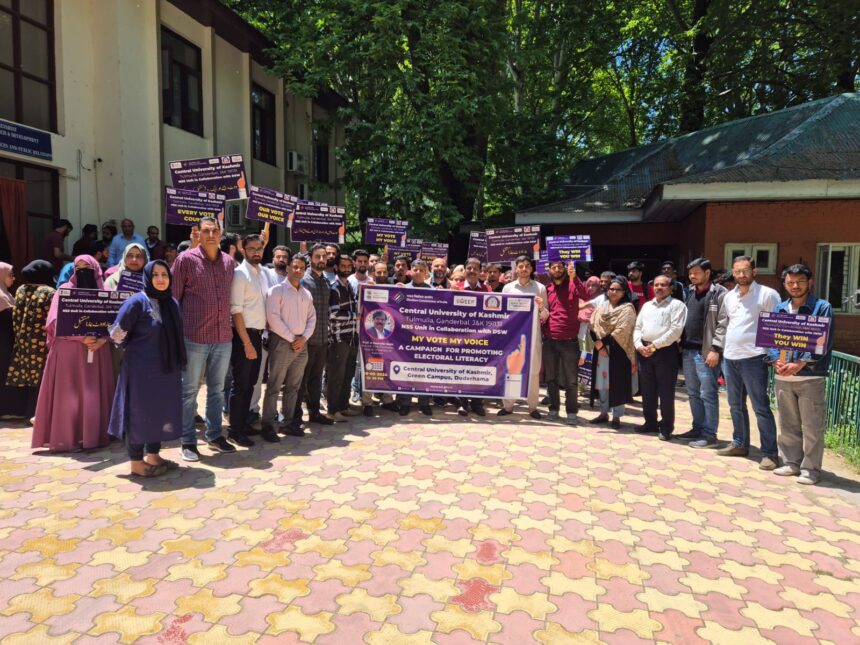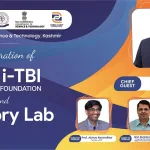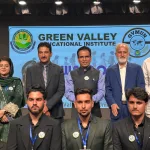Ganderbal, May 09: Continuing with its efforts to sensitise and promote the electoral literacy among the faculty members, students and staff, the NSS unit and Directorate of Students Welfare (DSW), Central University of Kashmir (CUKashmir) organised voter awareness campaigns at varsity’s Green Campus, Science Campus Nunar and Arts Campus.
Addressing the students at Green Campus, Vice-Chancellor, Prof. A Ravinder Nath, said, “democracy flourishes when citizens are informed, engaged, and empowered, and the objective of the sustained campaign is to cultivate a sense of civic duty among students and inspire them to exercise their right to vote.” He further said, voter awareness is crucial for a healthy democracy, as informed and engaged citizens are more likely to participate in elections and make informed choices.
Dean Academic Affairs, Prof. Shahid Rasool, said that as knowledge hubs, universities play a pivotal role in shaping the leaders and citizens of tomorrow and CUKashmir has embarked on a campaign to equip students with the tools and knowledge necessary to become informed and engaged voters.
Dr. Irfan Aalam- Dean DSW, Dr. Shabir Ahmad Ahanger-NSS Programme Coordinator, faculty members of respective campuses, students, teaching and administrative staff also participated in the campaigns.
Maths deptt holds workshop on IPR
The Department of Mathematics, Central University of Kashmir (CUKashmir) in association with the Rajiv Gandhi National Institute for Intellectual Property Management, Nagpur (RGNIIPM), under the “National Intellectual Property Awareness Mission (NIPAM)” jointly organised an online workshop on “Intellectual Property Rights (IPR) and Patents & Design filing” on Wednesday.
Vice-Chancellor, Prof. A. Ravinder Nath, emphasised the relevance of Intellectual Property Rights (IPR) in promoting innovation and start-ups. He said start-ups may benefit greatly from the protection of intellectual property rights. “Robust portfolios of Intellectual Property (IP) may be beneficial for attracting investments, promoting brands, safeguarding inventions, upholding legal rights, obtaining licensing agreements, and expanding globally.”
Speaker, Shri. Kumar Raju, Assistant Controller of Patents and Design, RGNIIPM, deliberated upon the necessity of patenting, censorship, and intellectual property rights. He began by outlining the differences between a finding and an invention, emphasising that a discovery cannot be copyrighted. With insights into the patenting process in India and its progression throughout time, he led the participants through the historical evolution of patenting.








